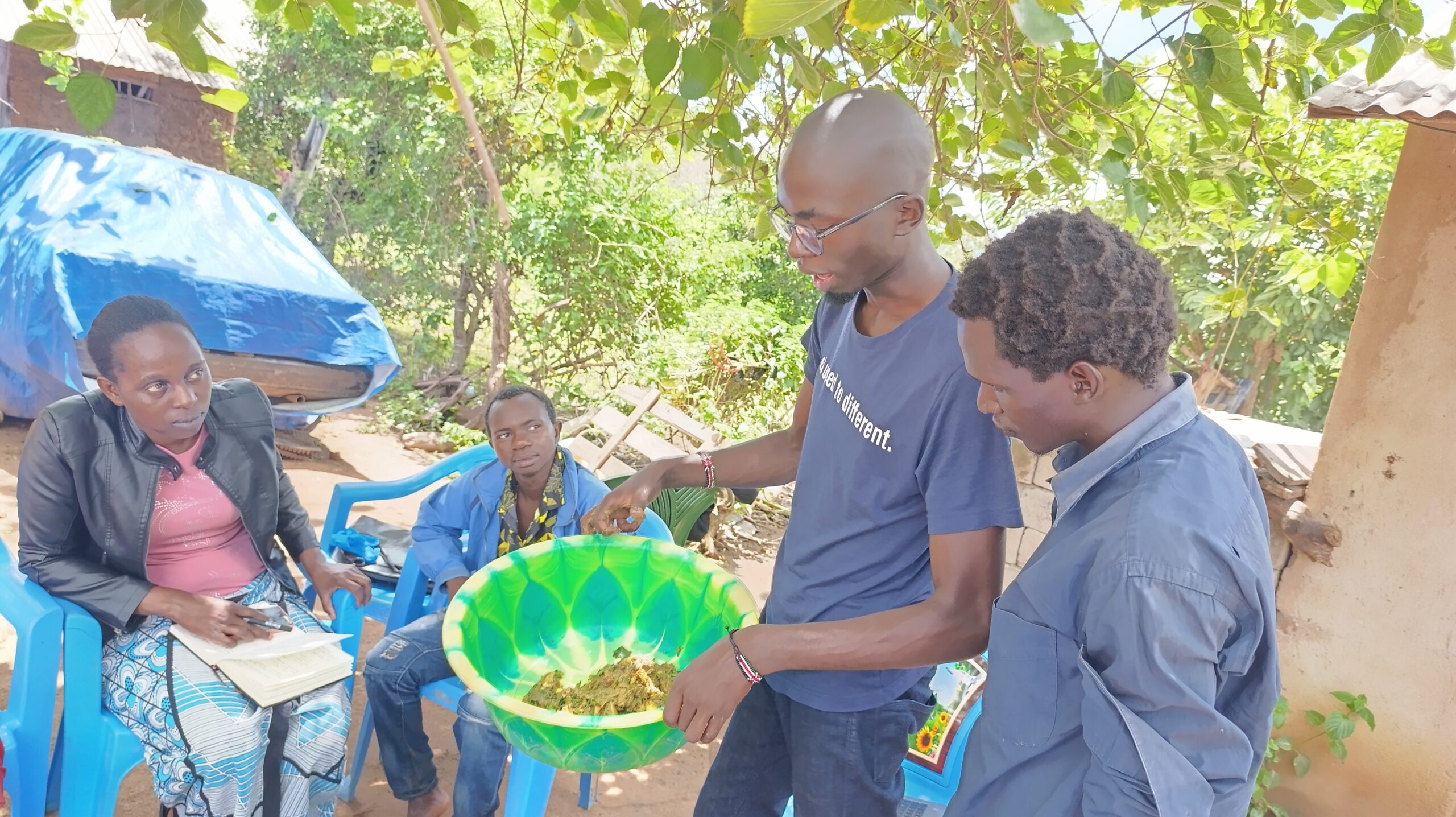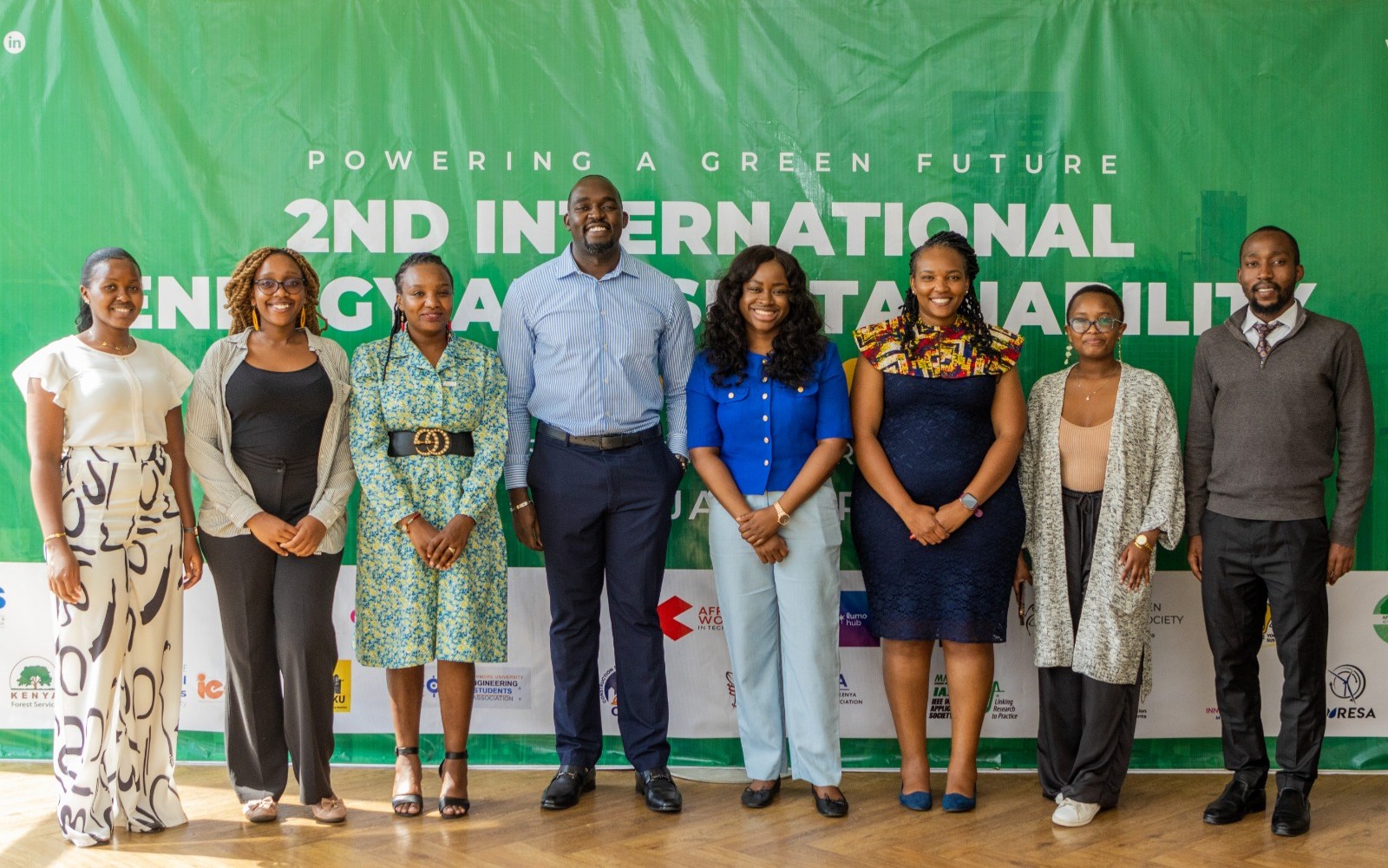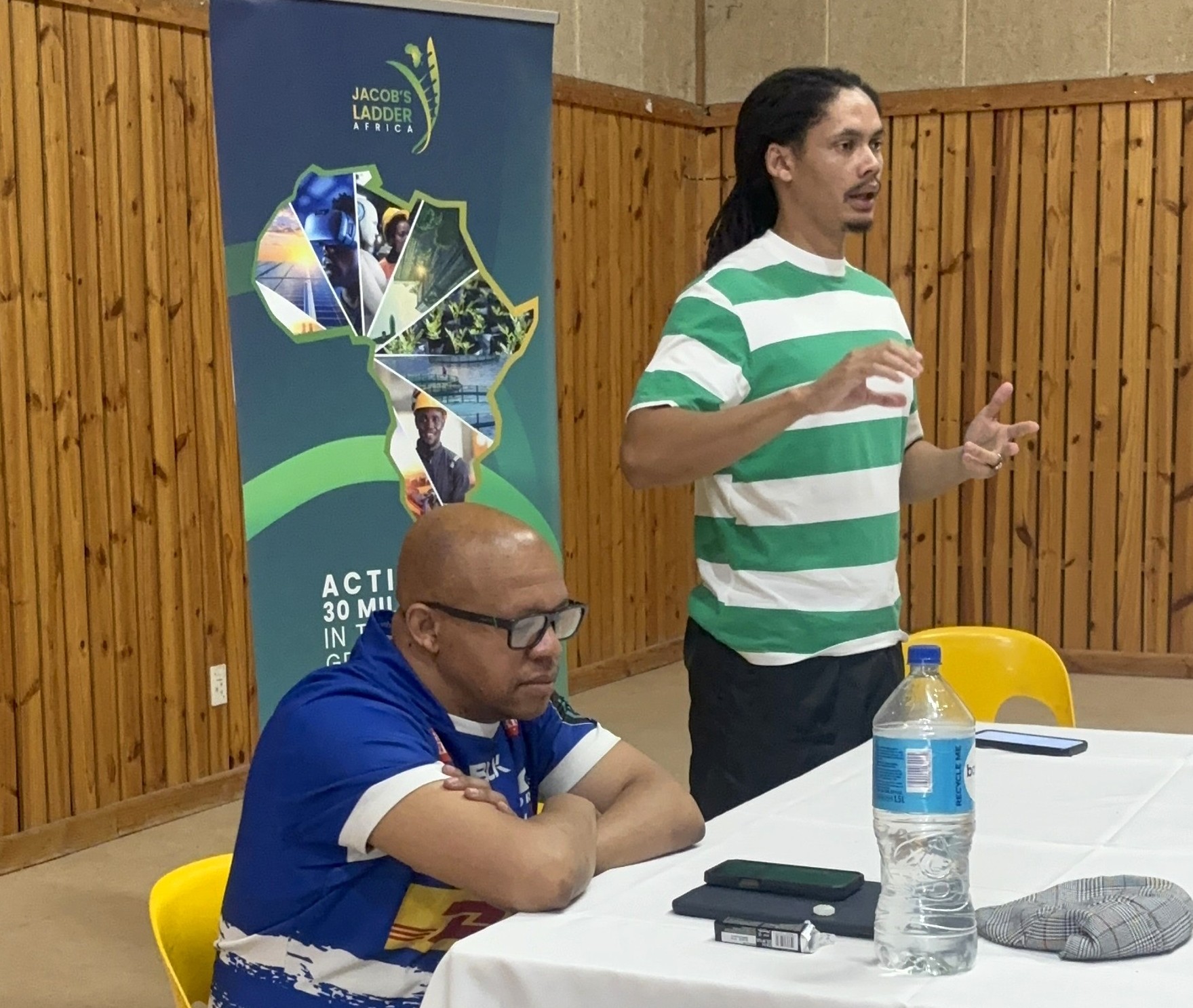In an exciting leap toward sustainable agriculture and youth empowerment, Jacob’s Ladder Africa (JLA) in partnership with Methagen Organics, an alumnus of its greenlabs Incubation Programme, recently delivered a powerful, hands-on training on Black Soldier Fly (BSF) production to four promising young changemakers from Makueni County, Kenya. These changemakers are from the JLA Aquaculture Program in the region.
The practical training saw the youth build fully functional BSF units using readily available, low-cost materials such as worn-out basins, mesh nets, and green waste. This approach embodies the circular economy principles JLA champions: reusing waste, reducing inputs, and regenerating value at every stage.
Scientifically known as Hermetia illucens, black soldier fly is a remarkable insect gaining global attention for its environmental and economic benefits. Notably, BSF larvae thrive on organic waste, converting it into high-quality protein. Globally, studies show that BSF larvae can reduce organic waste by up to 75%, making them a game-changer in regions where waste management remains a challenge.
Participants mastered the fermentation of organic matter to create nutritious feedstock for larvae cultivation. The BSF larvae themselves are a protein powerhouse, containing up to 60% protein and 35% fat, making them ideal as an alternative to fishmeal and soybean, both of which are environmentally intensive and increasingly costly.
This is especially relevant for the aquaculture and poultry sectors in Kenya and the broader East African region. According to the Kenya Marine and Fisheries Research Institute (KMFRI), aquaculture production in Kenya has grown from 1,000 metric tons in 2006 to over 20,000 metric tons in recent years, highlighting the urgent need for affordable and sustainable feed options.
To ensure hygiene and safety, the youth were trained in best practices such as hot water sterilization of harvested larvae which is a crucial step to maintain feed quality and safety.
What makes JLA’s model truly transformative is the commitment to building sustainable knowledge ecosystems. These newly trained entrepreneurs are not just equipped to launch their own BSF businesses, but are ready to train and supply others. Youth from distant communities can now set up their own BSF units and source starter larvae from their peers, initiating a ripple effect of impact and self-sustaining knowledge transfer. This peer-led model ensures the scaling of solutions beyond JLA’s immediate reach, amplifying both environmental and economic benefits.
A well-managed BSF unit can begin generating returns in as little as 90 days, with minimal input costs and scalable potential. In regions where unemployment among youth remains high, hovering around 13% in Kenya, these kinds of opportunities are not just timely, they’re necessary.
Moreover, by integrating waste management and protein production, BSF farming exemplifies the sustainable agriculture that JLA advocates: where outputs become inputs, value chains are localized, and waste is reimagined as wealth.
As climate change continues to upend traditional farming practices, innovations like BSF farming offer resilient, low-carbon, and inclusive alternatives. With continued mentorship and support from JLA, these youth are poised not just to raise insects, but engender sustainable agricultural practices within their communities.
They are proof that the future of farming in Africa is green, innovative, and youth-led.






